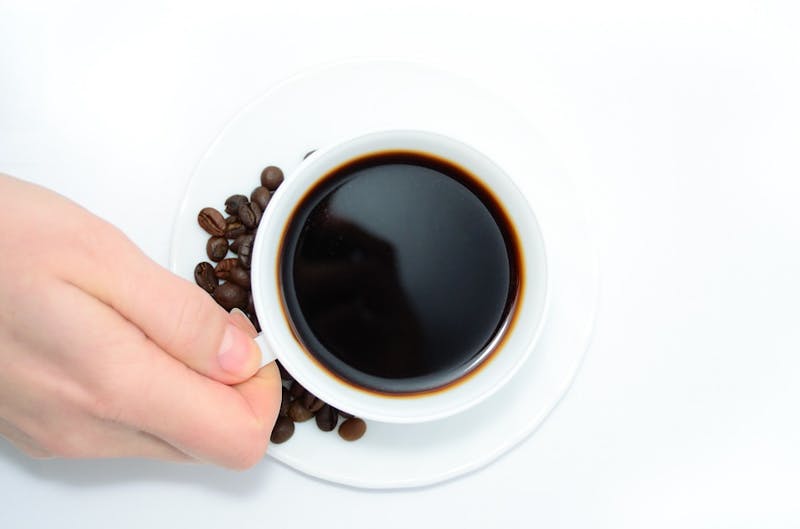
When it comes to coffee and weight loss, there are two sides of the coin. Some say caffeine can boost your metabolism and others say that coffee is off-limits during a weight loss regimen. So what gives? Are you impeding your progress by drinking that cup of Joe or are contributing to your goals? We took a look at the research to give you answers.
The Research
You may notice that caffeine is a staple in both energy drinks and weight loss pills and that’s because it does, in fact, contribute to weight loss in three major ways. Drinking caffeine speeds up lipolysis – or the process during which your body pulls fat out of fat stores and breaks them down for you to use as energy. To put it in more simple terms: caffeine does slightly boost metabolism and increasing fat burning.
Caffeine is also a stimulant, so it can give you a quick energy burst and increase alertness. When consumed before a workout, caffeine can give you the energy you need to bust through your workout with your best effort.
Coffee can also be classified as an anoretic, which means it suppresses your appetite. As a result, when you drink coffee, you simply eat less because you don’t feel as hungry as you would otherwise.
The Murky Area
The tricky part about caffeine consumption is not if you SHOULD drink it, but rather how much should you be drinking. When caffeine is consumed in excess, it can cause negative effects, like anxiety, high blood pressure, and diarrhea. You want to be sure you’re not overdoing it. Coffee is the most popular caffeinated beverage, but it’s not the only place you’re exposed to caffeine during the day. You’ll want to consider energy drinks, teas, and any supplements as well.
There is no one size fits all recommendation for how much caffeine you should be consuming in a day, since everybody’s body reacts differently to the stimulant, but a good general rule is to stay between 100 and 200 milligrams per day. To put that into perspective, a standard 8-ounce cup of coffee has about 95 milligrams of caffeine. Keep in mind that we said 8 ounces. The cups you get at your favorite coffeehouse are usually at least two times that size.
Sugar and Spice
This is a particularly important point to bring up, especially during pumpkin spice latte season: a big reason that coffee gets a bad rap for contributing to weight gain is because mainly people drink their coffees in the form of sugary, calorie-rich lattes and blended drinks. Even just adding cream and a few sugars to your coffee can turn change it from a metabolism-boosting drink to a weight loss nightmare. If you decide to stick with coffee, it’s best to drink it black. If that’s not an option, try a small amount of skim milk and a natural sweetener, like Stevia.

